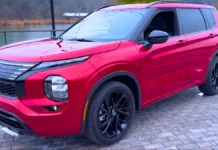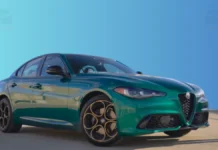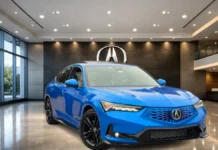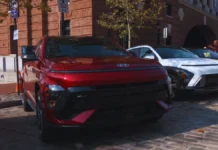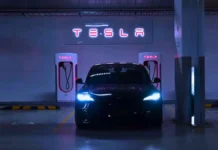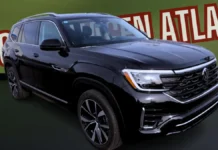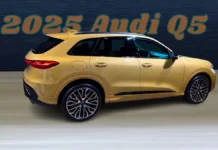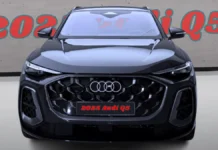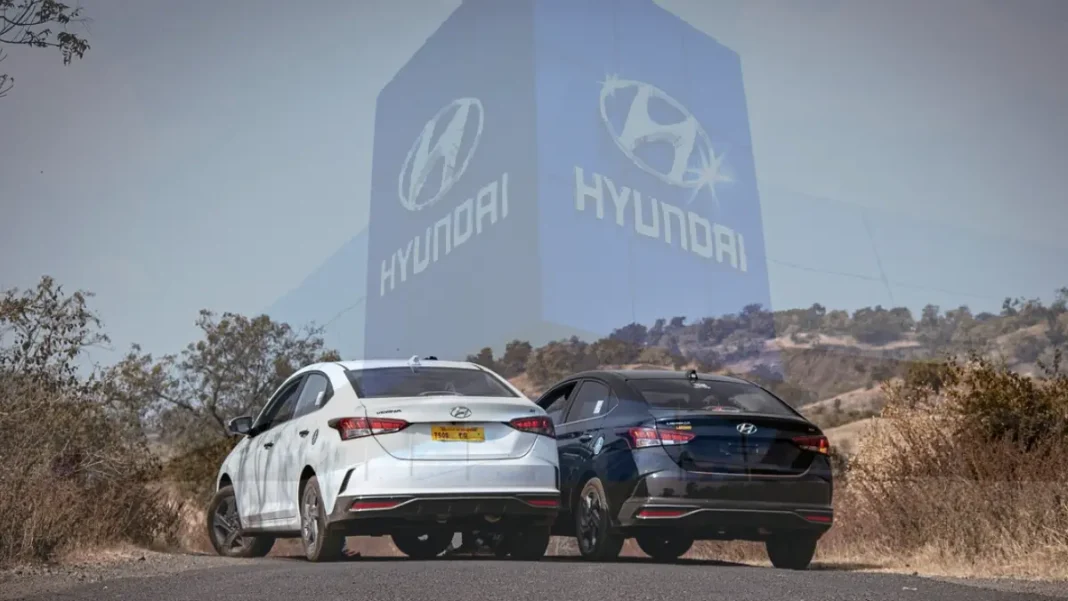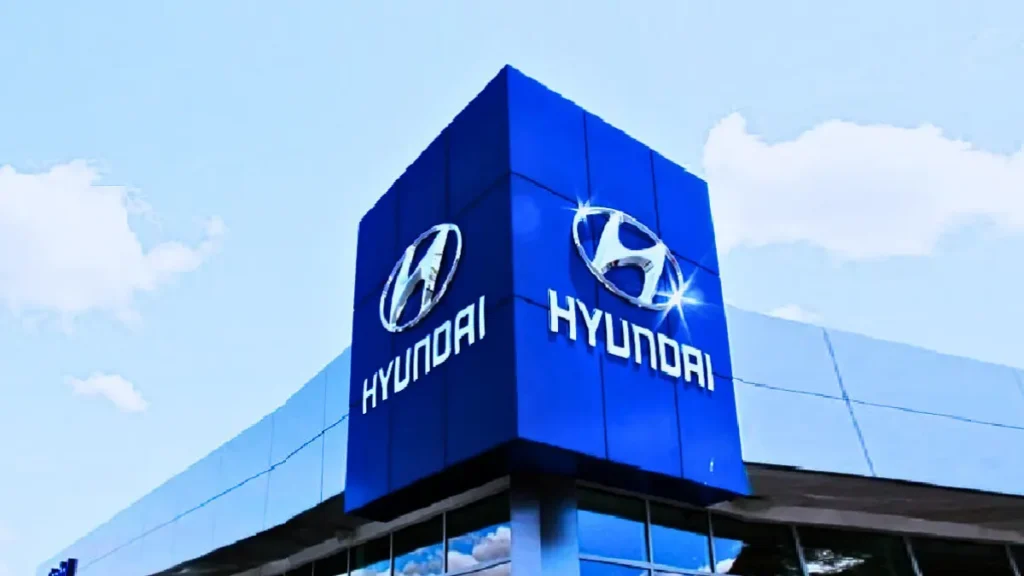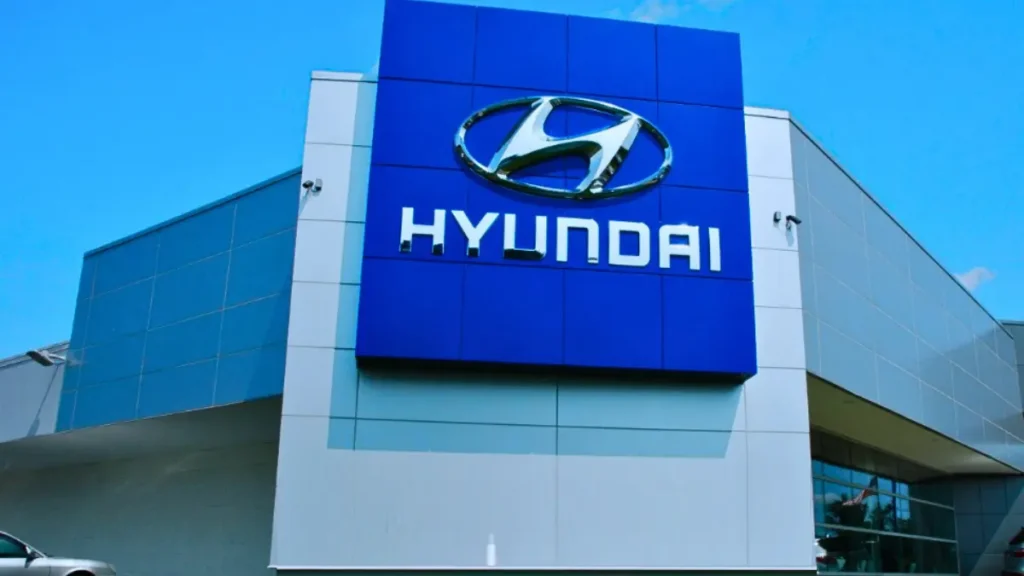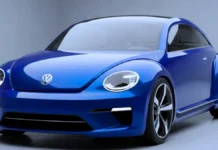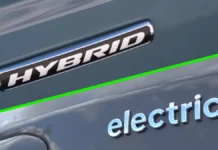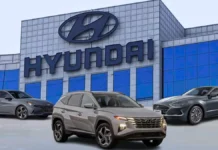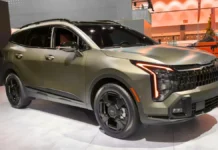Table of contents
Overview
When you ask “who makes Hyundai?”, you’re diving into a corporate success story rooted in South Korea — one that spans civil engineering, shipbuilding, and automotive innovation. In this guide, we’ll explore the manufacturer behind the Hyundai brand, its parent organization, its visionary founder, and why understanding this lineage matters to you.
Whether you’re curious about Hyundai’s origins, its global footprint, or what makes its vehicles tick, this article is your go-to resource. Along the way, you’ll read the primary keyword “who makes Hyundai” naturally woven into engaging subheadings and transitions.
Hyundai Motor Company: The Manufacturer
Origins & Official Name
Hyundai Motor Company — often simply known as “Hyundai” — was officially established in December 1967. Despite its later prominence in the auto industry, the company’s roots trace back to a modest service garage in the 1940s founded by Chung Ju‑yung ‘hyundai‘.
Key Facts (2023)
- Global sales: approximately 4.22 million vehicles, marking a 7 % year-over-year increase.
- Annual operating profit: KRW 15.12 trillion (~$12.8 billion), representing a 9.3 % margin.
- Electrification milestone: sold nearly 695,000 electrified vehicles (EVs + hybrids), including 268,785 EVs — up 37.2 % year-over-year.
These stats show Hyundai Motor Company as a robust and growing enterprise focused on electrification and profitability.
Brand Portfolio
- Hyundai (mainstream line-up: Elantra, Sonata, Tucson, Palisade)
- Genesis (luxury division, launched 2015)
- Investment: 33.9 % stake in Kia Motors — making Kia a close sister brand under Hyundai Motor Group ‘hyundai news‘.
Parent Organization: Hyundai Motor Group
Company vs Group
- Hyundai Motor Company is the manufacturer responsible for designing, producing, and selling Hyundai-branded vehicles.
- Hyundai Motor Group is the broader conglomerate that oversees Hyundai Motor, Genesis, Kia, and several sister firms, all working collaboratively under one umbrella.
Key Affiliates
- Hyundai Heavy Industries (shipbuilding)
- Hyundai Mobis (automotive parts supplier) ‘hyundai news‘
- Hyundai Motorsport (engineering and racing in Germany)
- Others include Hyundai Steel, Construction, Robotics, and Finance.
By integrating manufacturing (Mobis, Steel), R&D, construction, and even shipbuilding, the group benefits from shared resources, vertical integration, and economies of scale.
Leadership: Chung Eui‑sun
Since 2020, Chung Eui‑sun (grandson of founder Chung Ju‑yung) has led the group as Executive Chairman. A forward-thinker, he’s championed electrification, hydrogen fuel cell development, and mobility partnerships — steering Hyundai toward future mobility breakthroughs.
Founder Spotlight: Chung Ju‑yung
Brief Bio & Vision
Born in 1915 in rural Korea, Chung Ju‑yung rose from humble origins to lead one of the world’s largest conglomerates. He founded Hyundai Civil Industries in 1947 and became a household name in infrastructure development before entering shipbuilding and, in 1967, launching Hyundai Motor Company.
Legacy in Automotive
- Produced Korea’s first mass-produced vehicle, the Hyundai Pony, in 1973. Designed by Giorgetto Giugiaro, the Pony paved the way for Hyundai’s global expansion .
- Focused on international market success, Chung led Hyundai into global territories, fostering a reputation for quality, affordability, and rapid innovation.
His mantra — “Korean cars will conquer the world” — became reality, with Hyundai climbing into the top five global automakers.
How & Where Hyundai Cars Are Made
Main Plant: Ulsan, South Korea
- World’s largest single automotive complex: Covers 1,200 acres with five production lines and engine/transmission plants.
- Annual capacity: Around 1.4–1.5 million vehicles — a car rolls off the line every 10 seconds across 18‑hour shifts .
- Integrated facility: Includes its own port, R&D center, fire station, hospital, and logistics facilities.
This mega-site has been Hyundai’s production and innovation hub since 1968.
Upcoming EV Plant (Ulsan)
- New facility: A dedicated plant for EV assembly capable of producing 200,000 vehicles annually by 2026.
- Represents a strategic investment in the electrification era and smart manufacturing.
Global Production Footprint
Hyundai Motor Company manufactures vehicles internationally across:
- United States (Alabama)
- India (Tamil Nadu)
- China
- Brazil (Piracicaba plant, capacity 180,000 units/year)
- Czech Republic (Nošovice plant, high vertical integration)
Motorsports & R&D (Germany)
- Hyundai Motorsport, headquartered in Alzenau, Germany, spearheads technical development in performance and rally cars.
This European hub fuels R&D that benefits mainstream Hyundai and Genesis models.
Why It Matters: Brand, Parent, Founder
Shared R&D & Economies of Scale
Being part of Hyundai Motor Group unlocks significant advantages:
- Parts synergy: With Hyundai Mobis and Hyundai Steel in-house, the group tightens control over quality and cost.
- Investment muscle: 2023 saw KRW 12.4 trillion (~$10 billion) allocated for R&D, capex, and strategic initiatives.
This integrated structure enhances innovation velocity and manufacturing efficiency.
Innovation Focus: EVs & Hydrogen
- EV sales rose 27.7 % in Q4 2023, and 695,382 electrified vehicles were sold in 2023 ‘hyundai‘.
- Hyundai is also pioneering hydrogen — vehicles like the Nexo and hydrogen truck prototypes reflect this dual-tech strategy.
Final Thoughts
So, who makes Hyundai? The answer is clear: Hyundai Motor Company — a South Korean auto manufacturer that’s part of the broader Hyundai Motor Group, led by the forward-thinking Chung Eui‑sun, and founded by the iconic Chung Ju‑yung.
From its massive Ulsan plant (the largest in the world) to global production facilities and electrification efforts, Hyundai Motor showcases industrial strength, strategic vision, and technological leadership.
Thanks for reading! For those eager to explore deeper, check out our blog posts on Hyundai’s EV revolution, Genesis luxury strategy, or Hyundai vs. Tesla comparisons. Got questions or want insights on specific models or tech? Drop a comment below — we’d love to hear from you!
Post You May Find Useful
Frequently Asked Questions
Q1: Who owns Hyundai?
Hyundai Motor Company is a publicly traded entity, primarily part of Hyundai Motor Group. Its ownership includes institutional investors, the founding family, and global shareholders — but it’s an independent corporate entity, distinct from the broader Hyun dai conglomerate.
Q2: Is Genesis separate from Hyundai?
All Genesis models fall under Hyundai Motor Company and Hyundai Motor Group. Genesis is Hyundai’s luxury division — sharing platforms and manufacturing, yet marketed separately to highlight premium positioning.
Q3: Are Hyundai and Kia the same?
While Kia Motors is a separate publicly traded company, Hyundai Motor Group owns a majority stake (≈33.9%), making Kia a strategic sibling brand. They often share platforms, R&D, and supply chains, yet each maintains a distinct brand identity and design philosophy.

